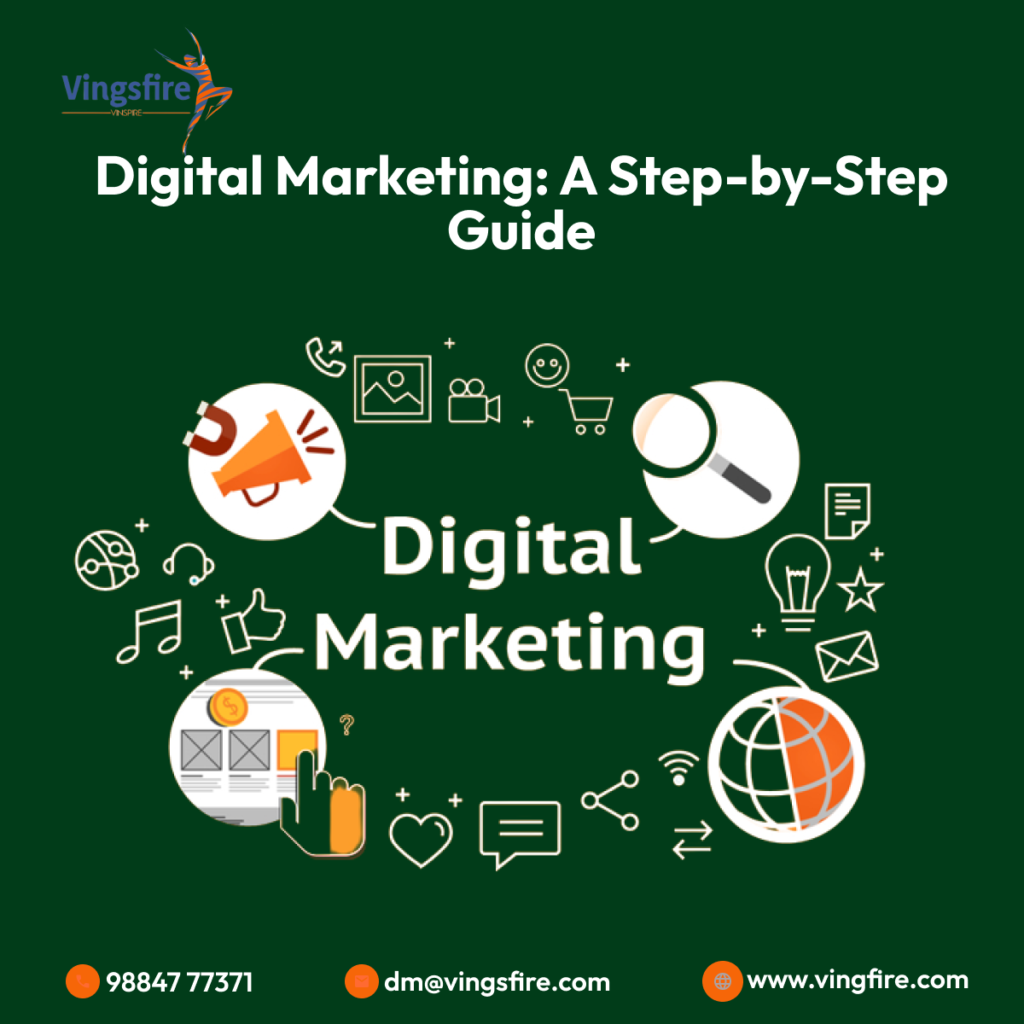
In the digital age, having a robust online presence is crucial for businesses of all sizes. Digital marketing offers a powerful way to reach and engage with your target audience, drive traffic to your website, and ultimately, increase conversions and revenue. However, diving into the world of digital marketing can be overwhelming without a clear roadmap. That’s why we’ve created this comprehensive step-by-step guide to help you navigate the digital marketing landscape and achieve your business goals.
Step 1: Define Your Objectives
Before you embark on your digital marketing journey, it’s essential to clearly define your objectives. What do you hope to achieve through your digital marketing efforts? Are you looking to increase brand awareness, generate leads, drive website traffic, or boost sales? By outlining your goals from the outset, you can tailor your strategies and measure your success more effectively.
Step 2: Know Your Audience
Understanding your target audience is key to crafting effective digital marketing campaigns. Take the time to research and analyze your audience demographics, preferences, and behaviors. What are their pain points and challenges? What platforms do they frequent online? By gaining insights into your audience, you can create content and messaging that resonates with them and drives engagement.
Step 3: Develop Your Digital Marketing Strategy
With your objectives and audience in mind, it’s time to develop your marketing strategy. Your strategy should encompass various channels and tactics, including:
* Search Engine Optimisation (SEO): Optimize your website and content to improve your visibility in search engine results pages (SERPs) and drive organic traffic.
* Content Marketing: Create valuable, relevant content that educates and entertains your audience, positioning your brand as an authority in your industry.
* Social Media Marketing: Engage with your audience on popular social media platforms such as Facebook, Instagram, Twitter, and LinkedIn. Share compelling content, run targeted ads, and interact with your followers to build relationships.
* Email Marketing: Nurture leads and retain customers through personalised email campaigns. Segment your email list based on demographics and behaviours to deliver relevant content to each subscriber.
* Pay-Per-Click (PPC) Advertising: Launch targeted PPC campaigns on platforms like Google Ads and Bing Ads to drive traffic to your website and generate leads.
* Influencer Marketing: Partner with influencers in your niche to reach a larger audience and build credibility for your brand.
Step 4: Implement Your Tactics
Once you’ve developed your digital marketing strategy, it’s time to put your plan into action. Create a content calendar to schedule your blog posts, social media updates, and email campaigns. Set up tracking tools such as Google Analytics to monitor your website traffic, conversions, and other key metrics. Regularly review your performance data to identify areas for improvement and optimization.
Step 5: Measure and Analyse Your Results
Effective digital marketing is all about continuous improvement. Regularly monitor and analyse your campaign performance to gauge your success and identify areas for optimisation. Track key metrics such as website traffic, conversion rates, click-through rates, and return on investment (ROI). Use the insights gained from your analysis to refine your strategies and tactics moving forward.
Step 6: Adapt and Evolve
The digital marketing landscape is constantly evolving, with new technologies, platforms, and trends emerging all the time. To stay ahead of the curve, it’s essential to adapt and evolve your digital marketing strategies accordingly. Stay informed about industry developments, experiment with new tactics, and be willing to pivot your approach based on changing market conditions and consumer behavior.
Conclusion
Digital marketing offers businesses unparalleled opportunities to connect with their target audience, drive engagement, and achieve their business objectives. By following this step-by-step guide, you can develop and implement a comprehensive digital marketing strategy that delivers real results for your brand. Remember to define your objectives, know your audience, develop a strategy, implement your tactics, measure your results, and adapt and evolve over time. With dedication and strategic planning, you can unlock the full potential of digital marketing and take your business to new heights.


